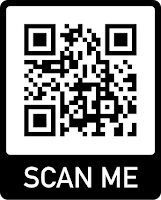Teaching Program Planning and Evaluation: Measuring Acquired Skills of Alumni in Health Education Settings
ABSTRACT
Purpose: The aim of this study was to better understand how program planning and evaluation courses prepare students for their future careers in various health settings. Participants (n=20) from three different institutions with Health Education programs in the U.S. participated in the study. Methods: A modified snow-ball sampling technique was used to contact alumni to participate in an online closed and open-ended survey using Qualtrics. Likert-scales assessed skills used in participants’ respective fields and types of theories and planning models used for program development and implementation. Open-ended questions allowed participants to share ways in which they practiced cultural competency, suggestions to enhance program planning and evaluation courses and advice for early-career professionals in health education and public health. Closed questions were analyzed using IBM SPSS and open-ended questions were analyzed using a constant comparison method for themes. Results: Findings varied based on the type of health assessment activity with surveys being the most used method for needs assessments and pre/post comparisons used for program evaluation. Strengths, Weaknesses, Opportunities, Threats (SWOT) was the planning model most likely used by participants for program development, with the health belief model and social cognitive theory being the most utilized theories. Regarding cultural competency, three themes focused on sustained community engagement, material development, inclusive environments. Themes that were developed pertaining to advice for future professionals included immersion with experiences, sustained learning, self-advocacy, and creativity with opportunities. The last open-ended question included themes focusing on integration of real-world experiences, practical skill development, and course adaptation to contemporary issues. Conclusions: The study concluded that health educators in the sample conduct activities and skills related to Areas I, II, III, and IV which include skills expected for entry-level health educators. Advanced skills within the Areas V, VI, and VII were not frequently reported. The sample of this study was very diverse in terms of occupational placement and therefore, reflects the current work settings of health educators. Recommendations: Program planning and Evaluation courses should develop projects that focus on civic engagement and service learning to address the practical, realistic, and contemporary needs of students’ learning.
วัตถุประสงค์: จุดมุ่งหมายของการศึกษาครั้งนี้คือเพื่อให้เข้าใจมากขึ้นว่าหลักสูตรการวางแผนและประเมินผลโปรแกรมจะเตรียมนักเรียนให้พร้อมสำหรับการประกอบอาชีพในอนาคตในด้านต่างๆ ด้านสุขภาพได้อย่างไร ผู้เข้าร่วม (n=20) จากสถาบันต่างๆ สามแห่งที่มีโปรแกรมสุขศึกษาในสหรัฐอเมริกาได้เข้าร่วมในการศึกษานี้ วิธีการ: มีการใช้เทคนิคการสุ่มตัวอย่างก้อนหิมะเพื่อติดต่อศิษย์เก่าเพื่อเข้าร่วมในการสำรวจแบบปิดและปลายเปิดทางออนไลน์โดยใช้ Qualtrics Likert-scales ประเมินทักษะที่ใช้ในสาขาที่เกี่ยวข้องของผู้เข้าร่วมและประเภทของทฤษฎีและรูปแบบการวางแผนที่ใช้สำหรับการพัฒนาโปรแกรมและการดำเนินการ คำถามปลายเปิดช่วยให้ผู้เข้าร่วมได้แบ่งปันวิธีการที่พวกเขาฝึกฝนความสามารถทางวัฒนธรรม ข้อเสนอแนะในการปรับปรุงหลักสูตรการวางแผนและการประเมินโปรแกรมและคำแนะนำสำหรับมืออาชีพในช่วงต้นอาชีพในด้านสุขศึกษาและสาธารณสุข คำถามที่ปิดถูกวิเคราะห์โดยใช้ IBM SPSS และคำถามปลายเปิดได้รับการวิเคราะห์โดยใช้วิธีการเปรียบเทียบคงที่สำหรับธีม ผลลัพธ์: สิ่งที่ค้นพบแตกต่างกันไปตามประเภทของกิจกรรมการประเมินสุขภาพ โดยการสำรวจเป็นวิธีที่ใช้มากที่สุดสำหรับการประเมินความต้องการและการเปรียบเทียบก่อน/หลังที่ใช้ในการประเมินโปรแกรม จุดแข็ง จุดอ่อน โอกาส ภัยคุกคาม (SWOT) เป็นรูปแบบการวางแผนที่ผู้เข้าร่วมส่วนใหญ่มักใช้ในการพัฒนาโปรแกรม โดยรูปแบบความเชื่อด้านสุขภาพและทฤษฎีความรู้ความเข้าใจทางสังคมเป็นทฤษฎีที่ใช้มากที่สุด เกี่ยวกับความสามารถทางวัฒนธรรม สามประเด็นหลักที่เน้นการมีส่วนร่วมของชุมชนอย่างยั่งยืน การพัฒนาวัสดุ และสภาพแวดล้อมที่ครอบคลุม หัวข้อที่พัฒนาขึ้นเกี่ยวกับคำแนะนำสำหรับผู้ประกอบอาชีพในอนาคต ได้แก่ การดื่มด่ำกับประสบการณ์ การเรียนรู้อย่างยั่งยืน การสนับสนุนตนเอง และความคิดสร้างสรรค์พร้อมโอกาส คำถามปลายเปิดสุดท้ายรวมถึงหัวข้อที่เน้นการบูรณาการประสบการณ์ในโลกแห่งความเป็นจริง การพัฒนาทักษะในทางปฏิบัติ และการปรับหลักสูตรให้เข้ากับประเด็นร่วมสมัย สรุป: การศึกษาสรุปว่านักการศึกษาด้านสุขภาพในกลุ่มตัวอย่างดำเนินกิจกรรมและทักษะที่เกี่ยวข้องกับพื้นที่ I, II, III และ IV ซึ่งรวมถึงทักษะที่คาดหวังสำหรับนักการศึกษาด้านสุขภาพระดับเริ่มต้น ทักษะขั้นสูงในพื้นที่ V, VI และ VII นั้นไม่ค่อยถูกรายงานบ่อย ตัวอย่างของการศึกษาครั้งนี้มีความหลากหลายมากในแง่ของการฝึกงาน ดังนั้นจึงสะท้อนถึงสภาพการทำงานในปัจจุบันของนักการศึกษาด้านสุขภาพ คำแนะนำ: หลักสูตรการวางแผนและประเมินผลโครงการควรพัฒนาโครงการที่เน้นการมีส่วนร่วมของพลเมืองและการเรียนรู้การบริการเพื่อตอบสนองความต้องการในทางปฏิบัติ เป็นจริง และร่วมสมัยของการเรียนรู้ของนักเรียน
download PDFรายการอ้างอิง
Callahan, C. M., Azano, A. P., Park, S., Brodersen, A. v., Caughey, M., Bass, E. L., & Amspaugh, C. M. (2020). Validation of Instruments for Measuring Affective Outcomes in Gifted Education. Journal of Advanced Academics, 31(4), 470–505. https://doi.org/10.1177/1932202X20929963



ความคิดเห็น
แสดงความคิดเห็น